A US survey shows that 60% of Americans say they would vote for a qualified presidential candidate who happened to be a Muslim.
The results of a new poll by Gallup is at odds with that of one of the leading Republican contenders for the party's 2016 presidential nomination Ben Carson, who said on NBC's Meet the Press Sunday, "I would not advocate that we put a Muslim in charge of this nation. I absolutely would not agree with that."
Carson's sentiment on this issue is out of sync with the American public, 60% of whom in June said they personally would vote for an otherwise well-qualified candidate for president who happened to be Muslim.
Attitudes toward a Muslim president were measured as part of a broader question that asked Americans if they would vote for an otherwise well-qualified candidate who fit one of 11 different descriptions. Six of the 11 related to religion: Catholic, Jewish, Mormon, evangelical Christian, Muslim and atheist.
The responses show that the 6 in 10 Americans who say they would vote for a Muslim candidate - while still a majority - is tied as the second-lowest positive response across the 11 categories tested. Less than half, 47%, would vote for a socialist. The 58% who would vote for an atheist is just about the same as the percentage who would vote for a Muslim candidate.
The partisan split on the question shows that a slight majority of Republicans, 54%, say they would not vote for a Muslim for president, while 45% said that they would. Seventy-three percent of Democrats would vote for a Muslim.
With the US Constitution banning a religious test for holding public office, Carson's stance was quickly condemned. The Council on American-Islamic Relations said he was unfit to be president and called on him to quit the nominating contest.
On Tuesday, Carson blamed political correctness for the furor over his comment. He said that he would also oppose a Christian who wanted to establish a theocracy in the US.
Carson, a devout Christian, said his view was that anyone seeking the presidency ought to embrace the country's Constitution and American principles.
Clarence Page, a syndicated columnist and Washington-based member of the Chicago Tribune’s editorial board, wrote in his Tuesday report that, “it is Carson's religious litmus test that is inconsistent with the Constitution,” responding to Carson’s remarks that said “Islam is inconsistent with the Constitution and the values and principles of America.”
Article VI, paragraph 3 of the document says, "... no religious test shall ever be required as a qualification to any office or public trust under the United States."
The first amendment to the Constitution begins: “Congress shall make no law respecting an establishment of religion, or prohibiting the free exercise thereof...”
Chicago Tribune reported that, “we Americans thought we had said goodbye to the sort of religious bigotry that marked the nation's past that it erupted ferociously against the presidential run by New York Gov. Al Smith, a Catholic, in 1928. The election in 1960 of a Catholic, John F. Kennedy, despite vocal opposition from some throwbacks, seemed to put that religious test question to rest."
Carson's comments faced other reactions from his fellow presidential candidates too.
The Florida Senator Marco Rubio said faith should not disqualify anyone from the presidency, while adding that a person who believes in Sharia law would not be elected to public office in America in any case.
The former Florida governor Jeb Bush believes an individual’s faith is irrelevant to seeking the White House or any public office, his campaign told the Guardian. “The United States Constitution is clear,” Allie Bradenburger, a Spokeswoman for Bush’s campaign, said in an email. “It prohibits religious tests for public office.”
South Carolina Senator Lindsey Graham rebuked Carson for his comments on Twitter on Sunday: "Carson is not ready to be Commander-in-Chief. America is an idea, not owned by a particular religion. Carson needs to apologize to American Muslims. He is a good doctor, but clearly not prepared to lead a great nation."
Ardent conservative Ted Cruz expressed his disagreement with Carson in more measured words. In an interview with Iowa public television, the Texas senator said: “You know, the Constitution specifies there shall be no religious test for public office and I am a constitutionalist.”
Former Arkansas governor Mike Huckabee declined to directly attack Carson, he said: “I think it would depend on the individual. I don’t think we ought to just disqualify from somebody because of his or her faith.”
Hilary Clinton issued in her twitter, "can a Muslim be President of the United States of America? In a word: Yes. Now let's move on."
Carson is hardly alone in his demagogue which fuels Islamophobia in the country. Republican presidential candidate Donald Trump has also demonstrated signs of rabble-rousing. Recently he had said Barack Obama was a foreign-born, and was trying to call him a Muslim. In an interview with Fox News, he said, “Muslims are phenomenal people, but like everything else you have people where there are problems,” Trump told ABC News.
Regarding the recent criticisms against Carson's anti-Islam comments, his national net favorable score of +28 which is by far the most positive of any GOP candidate, is under shadow.
Carson's national name identification will no doubt rise in the days ahead, but what impact his statement and the media focus that has resulted will have on his image remains to be seen.



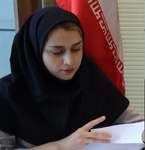


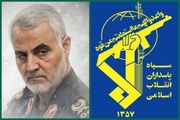
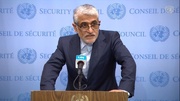
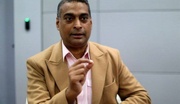

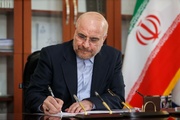

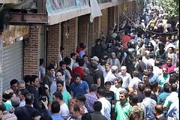

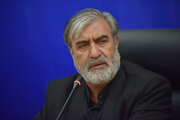
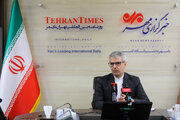



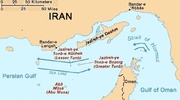


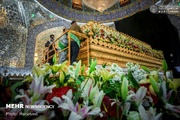
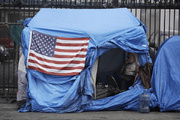

Your Comment